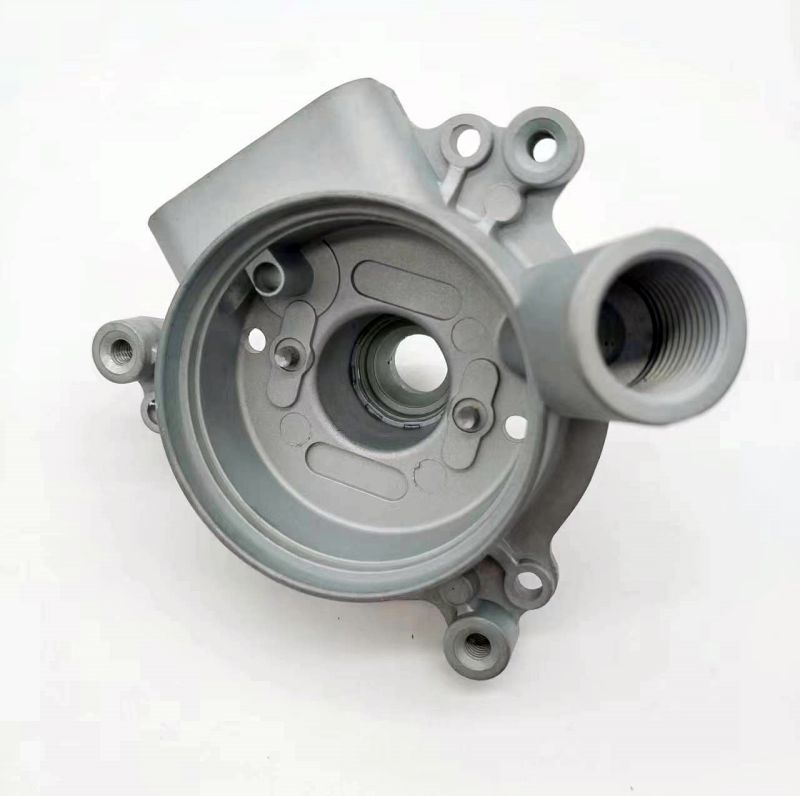- English
- Español
- Português
- русский
- Français
- 日本語
- Deutsch
- tiếng Việt
- Italiano
- Nederlands
- ภาษาไทย
- Polski
- 한국어
- Svenska
- magyar
- Malay
- বাংলা ভাষার
- Dansk
- Suomi
- हिन्दी
- Pilipino
- Türkçe
- Gaeilge
- العربية
- Indonesia
- Norsk
- تمل
- český
- ελληνικά
- український
- Javanese
- فارسی
- தமிழ்
- తెలుగు
- नेपाली
- Burmese
- български
- ລາວ
- Latine
- Қазақша
- Euskal
- Azərbaycan
- Slovenský jazyk
- Македонски
- Lietuvos
- Eesti Keel
- Română
- Slovenski
Why does Precision Investment Casting Process use high-quality alloy materials?
2025-06-17
In modern manufacturing, Precision Investment Casting Process has good forming ability and high-precision characteristics, becoming the core technology for producing complex castings. The application of high-quality alloy materials far exceeds traditional casting methods in terms of performance, cost, and customization.

Performance improvement
High quality alloy materials can significantly improve the mechanical properties of castings in the Precision Investment Casting process. For example, materials such as titanium alloys and high-temperature alloys have high strength and hardness, and are used in key components such as engine blades in the aerospace field. They can maintain stable structural strength and effectively resist deformation and fracture in extreme environments of high temperature and high pressure; In automobile manufacturing, parts made of high-strength alloy materials can withstand greater loads and impact forces, significantly improving the safety and durability of automobiles. Many high-quality alloy materials also have excellent wear resistance, such as stainless steel and wear-resistant alloys, which are used in mechanical transmission components, molds, etc. They can significantly reduce surface wear, extend the service life of castings, and reduce equipment maintenance costs. High quality alloy materials exhibit outstanding performance in corrosion resistance and high temperature resistance. In fields such as chemical and marine engineering, pipes, valves, and other components made of corrosion-resistant alloy materials can effectively resist the erosion of corrosive media such as acid, alkali, and salt spray; High temperature alloy materials can maintain stable mechanical properties in high-temperature environments above 800 ℃, meeting the needs of high-temperature components such as aircraft engine combustion chambers and turbine disks, and providing reliable support for equipment operation under high-temperature conditions.
cost optimization
Although high-quality alloy materials themselves may be expensive, the comprehensive cost advantage of Precision Investment Casting Process is evident. The high-precision characteristics of precision investment casting, combined with the good fluidity and formability of high-quality alloy materials, can make the casting form close to the final size in one go, greatly reducing the amount of subsequent machining. Compared with traditional casting processes, precision investment casting can control the machining allowance within a very small range, and even some castings do not require secondary processing, thereby saving a lot of processing time and material loss, and reducing production costs. From a long-term usage perspective, castings made of high-quality alloy materials have stable performance and long lifespan, reducing the frequency of replacement due to component damage. In large mechanical equipment and industrial production lines, the use of high-quality alloy castings can reduce downtime and replacement costs, improve overall equipment operating efficiency, and achieve cost optimization from the perspective of the entire lifecycle.

